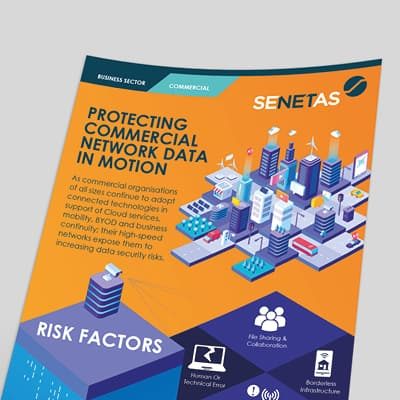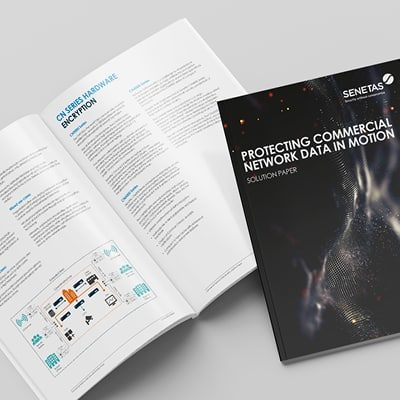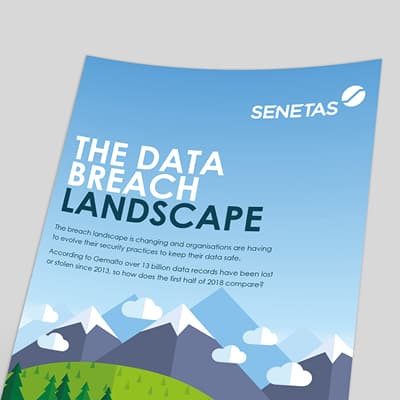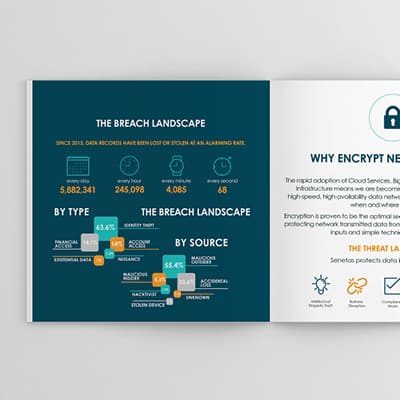Senetas commercial cyber security services are being used to project commercial data transmitted across high-performance core network infrastructures – private and public data networks – in more than 60 countries. Their certifications by multiple international testing authorities validate their high-assurance security credentials.
High-Assurance Cyber Security for Commercial Network Data
There is an assumption that data networks are inherently secure; they are not.
In its annual Global Security Report, Trustwave reported that 62.5% of all data theft occurred whilst data was in transit.
As commercial organisations of all sizes continue to adopt connected technologies in support of Cloud services, mobility, BYOD and business continuity; their high-speed networks expose them to increasing data security risks.
The consequences of a successful cyber security breach are wide-ranging. Breach of privacy, identity theft, financial harm, loss of business-critical intellectual property, damage to reputation and exposed business secrets can be devastating to many stakeholders.
Protecting Commercial Data In Motion
Data in motion is exposed to a range of potential risks, from the malicious (hacking and cyber-crime) to the innocent (technical fault and human error).
The most effective way to protect your data in transit is with encryption. By protecting the breach, you ensure that your data is rendered useless should it fall into unauthorised hands.
Global Certification
Senetas encryptors hold product certifications by the three leading international government testing authorities, FIPS, Common Criteria and NATO.
While these certifications are mandatory requirements of most governments, they provide the same level of assurance to commercial organisations.
Cyber Security Without Compromise
Big data applications like Cloud computing, HD video streaming, industrial control systems and high volume transaction processing place demands upon high-speed networks:
- Maximum performance
- Dependable up-time
- Low latency
- Ease of management
- Scalability
Unlike some encrypted data networks that lose up to 70% of their bandwidth and speed performance, Senetas’ near-zero latency data encryption does not compromise network performance.
That’s why Senetas cyber security technology is trusted by commercial businesses to protect the most sensitive information.
- Near-zero latency
- 99.999% reliability and availability
- Minimum setup and management
- Scalability for varying bandwidths
- Suitable for all topologies
- Ease of local or remote management






